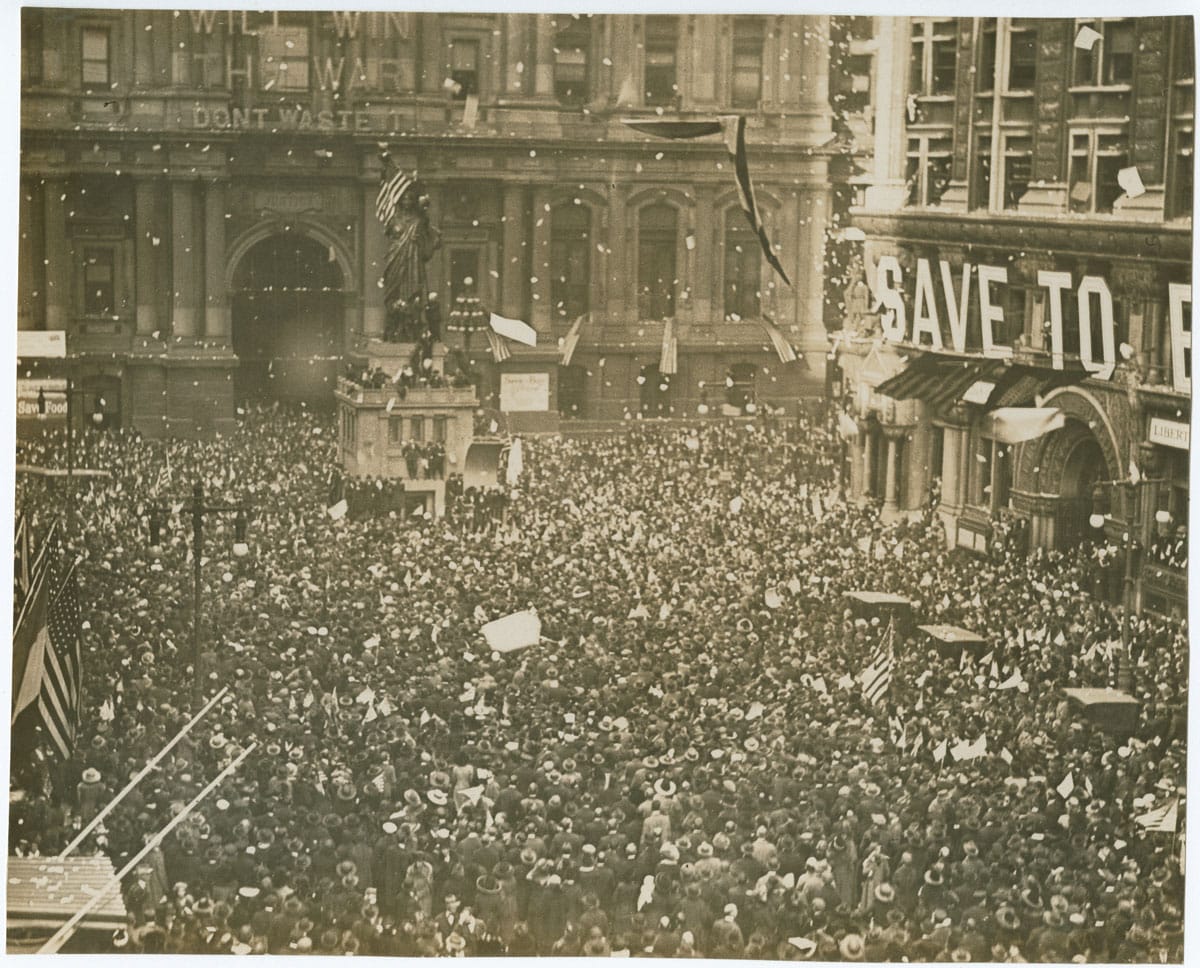armistice / Armistice Day

An armistice is a formal suspension of hostilities. In early use, the word was used to refer to a ceasefire or short truce, and later it came to refer to the end of all hostilities between warring nations prior to negotiating a formal peace treaty. The English word is a borrowing from the French, which takes it from the post-classical Latin armistitium formed from arma (arms) + stit (past participle of sistere, to stand still, stop).
The earliest recorded use of armistice in English is in a 1677 account of the Danish siege of Malmö, Sweden in that year:
In the Afternoon the Enemy did desire a Truce, for to bury the Dead, which our Governour, for that time, for certain and important reasons, did refuse to grant. The next following Day, viz. the 27th ditto, they again desired an Armistice for to bury their Dead, which then accordingly upon certain Conditions was granted.
11 November 1918, the day World War I ended, was dubbed Armistice Day, and it quickly became a national holiday in most of the Allied nations. Here is an account of a suggestion for that holiday in the United States in the Omaha, Nebraska Evening World-Herald of 12 November 1918, a proposal to combine the Thanksgiving and end-of-the-war remembrances. Needless to say, this particular proposal was not adopted, and November has two national holidays in the United States:
“There is sure to be some holiday growing out of this war, and why not make it one in the month instead of two?”
“Monday was the greatest day the country ever saw,” said “Old Man” Johnson, manager of the Gayety theater, this morning. “So I wired President Wilson, suggesting that he set aside November 11 as a national holiday, and calling it ‘Armistice Day.’”
Commemoration of the end of the First World War continues to be celebrated in many countries, although the name changed following the Second World War and the day rededicated to those who died in all wars, not just WWI. In Britain and the Commonwealth, the holiday is generally known as Remembrance Day. In the United States since 1954 has been known as Veterans Day and has been rededicated to living veterans; the US already had Memorial Day, celebrated in May, which started to be celebrated in the aftermath of the Civil War.
Sources:
“Omahan Suggests November 11 as National Holiday.” Evening World-Herald (Omaha, Nebraska), 12 November 1918, 1/2. Readex: America’s Historical Newspapers.
Oxford English Dictionary, third edition, June 2014, s.v. armistice, n., Armistice Day, n.; June 2017, s.v. Veterans Day, n.; December 2009, s.v. Remembrance Day, n.
A Relation of the Siege Laid and Raised Again Before Malmoo. London: 1677, 7. ProQuest: Early English Books Online.
Photo credit: Library Company of Philadelphia, 1918. Wikimedia Commons. Public domain image.